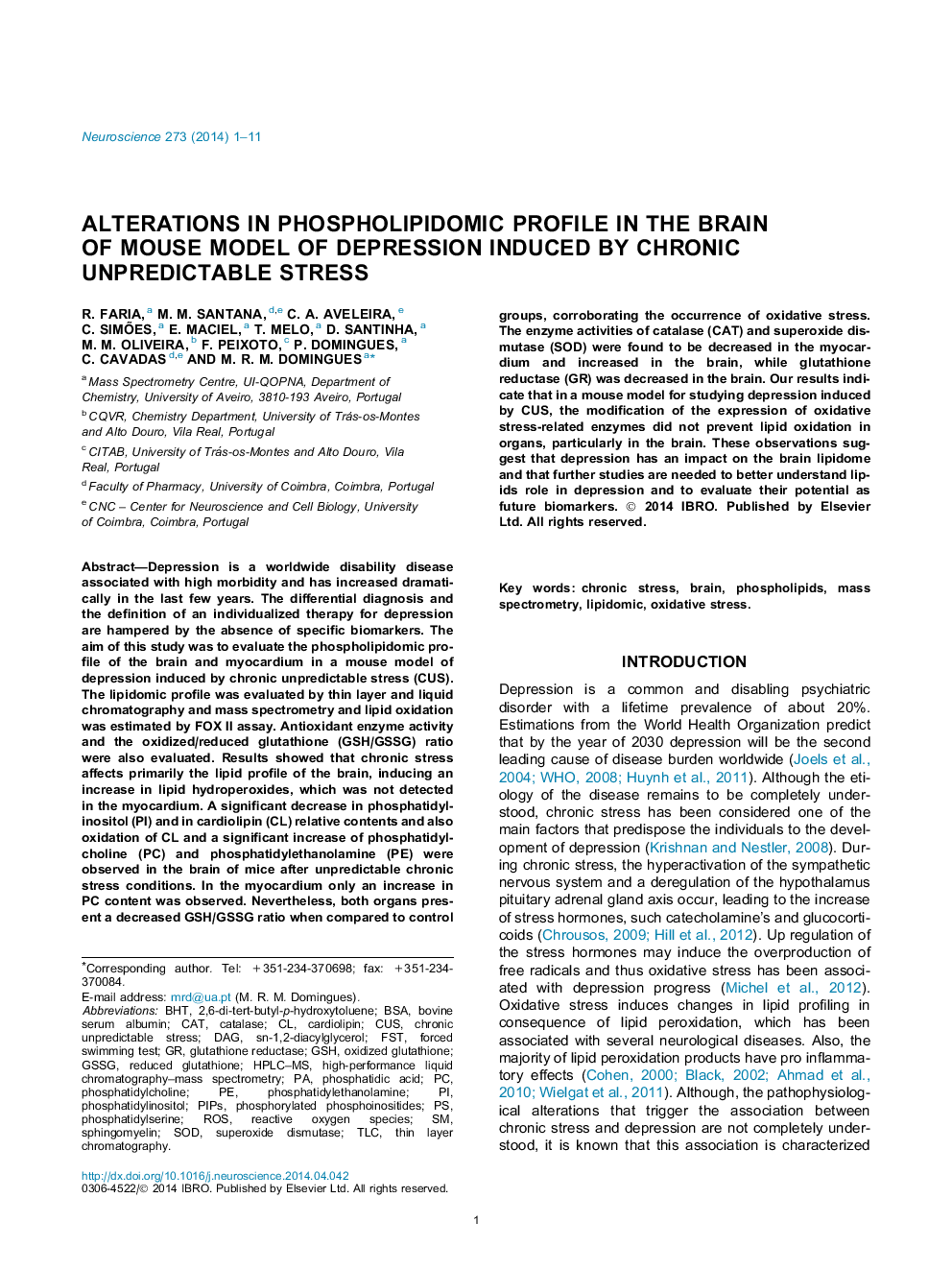| کد مقاله | کد نشریه | سال انتشار | مقاله انگلیسی | نسخه تمام متن |
|---|---|---|---|---|
| 6273409 | 1614803 | 2014 | 11 صفحه PDF | دانلود رایگان |
- Depression induced by chronic unpredictable stress has an impact on brain lipidome.
- Changes in phospholipidomic profile occurred in the brain of a mouse model of depression.
- CL oxidation was detected in the brain of a mouse model of depression.
- Diminished GSH/GSSG corroborates the occurrence of oxidative stress.
- In myocardium only an increase in PC content was disclosed.
Depression is a worldwide disability disease associated with high morbidity and has increased dramatically in the last few years. The differential diagnosis and the definition of an individualized therapy for depression are hampered by the absence of specific biomarkers. The aim of this study was to evaluate the phospholipidomic profile of the brain and myocardium in a mouse model of depression induced by chronic unpredictable stress (CUS). The lipidomic profile was evaluated by thin layer and liquid chromatography and mass spectrometry and lipid oxidation was estimated by FOX II assay. Antioxidant enzyme activity and the oxidized/reduced glutathione (GSH/GSSG) ratio were also evaluated. Results showed that chronic stress affects primarily the lipid profile of the brain, inducing an increase in lipid hydroperoxides, which was not detected in the myocardium. A significant decrease in phosphatidylinositol (PI) and in cardiolipin (CL) relative contents and also oxidation of CL and a significant increase of phosphatidylcholine (PC) and phosphatidylethanolamine (PE) were observed in the brain of mice after unpredictable chronic stress conditions. In the myocardium only an increase in PC content was observed. Nevertheless, both organs present a decreased GSH/GSSG ratio when compared to control groups, corroborating the occurrence of oxidative stress. The enzyme activities of catalase (CAT) and superoxide dismutase (SOD) were found to be decreased in the myocardium and increased in the brain, while glutathione reductase (GR) was decreased in the brain. Our results indicate that in a mouse model for studying depression induced by CUS, the modification of the expression of oxidative stress-related enzymes did not prevent lipid oxidation in organs, particularly in the brain. These observations suggest that depression has an impact on the brain lipidome and that further studies are needed to better understand lipids role in depression and to evaluate their potential as future biomarkers.
Journal: Neuroscience - Volume 273, 25 July 2014, Pages 1-11
